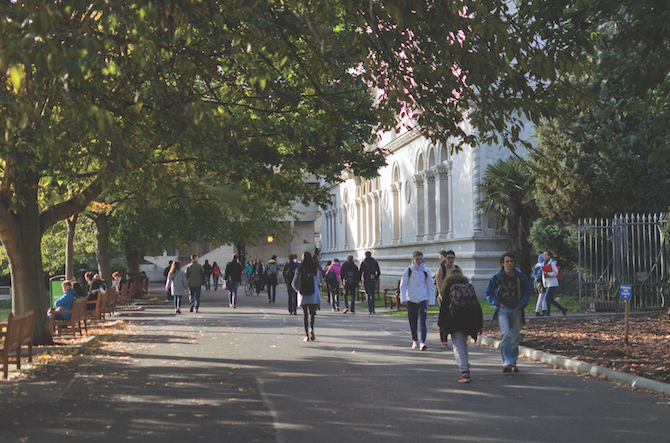
Social workers, according to Buckley, find it easier to interact with mothers on an emotional and personal level. The imbalance can mean that the fathers importance as a role model isn’t always recognised.
Dr. Buckley further claimed: that “men wouldn’t discriminate to the same degree because they would identify with their role in the family.” Many therapists argue that this bias alienates men when seeking treatment.
It seems that this imbalance stretches across the field as a whole. Male representation is below the international average. Studies show that only 15% of social workers in the Health Service Executive and Tusla, a child and family agency, are men. In TCD this year, 8 of the 44 final year students in the social degree course are men.
Eamonn Redmond, a final year TCD social welfare student, attributes this disparity to societal stereotypes. He told Trinity News that many of the “personal qualities” and “intrinsic values” associated with social care, such as “compassion, empathy and kindness”, are generally seen as more “prevalent in women.” He believes that this creates a “certain reluctance for men to engage in the social work course” especially at secondary level education. Similar disparities exist in other fields such as “nursing, occupational therapy and speech and language therapy,” Redmond claims.
Economic factors have a substantial role to play claims David Galley, Phd fellow at Bournemouth University, told the Guardian that “as a profession, it has a lower status and salary range than some comparable professions.” State employed social workers earn from €36,000 to €72,000 a year depending on grade and experience.
However, Dr. Buckley did say that it was interesting how “male dominated the management structure of Tusla is, considering it deals with a largely female profession.”
Donal O’Malley, Chairman of the Irish Association of Social Workers questions whether men would be more “sympathetic towards the fathers” who are, he claims, “far more difficult to engage with” on a whole.
However, both Mr. O’Malley and Dr. Buckley concede that “any positive-role modelling of males is probably a good thing”






